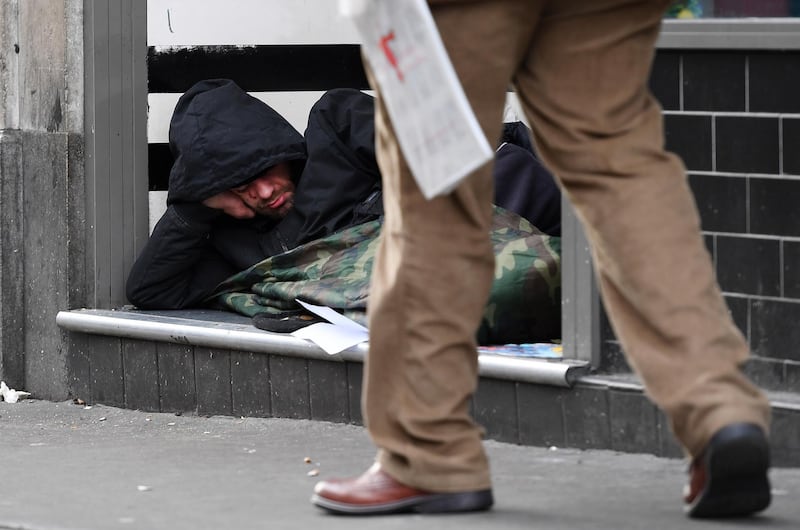Britain's parliament spent hours squabbling about Brexit and an alleged misogynistic jibe, oblivious to the plight of a 45-year-old man who collapsed outside Westminster underground station and later died.
Gyula Remes was a Hungarian immigrant who had only recently begun working as a kitchen assistant in a restaurant near Charing Cross and was one of a number of homeless people who sleep rough close to the Houses of Parliament.
Late on Tuesday he was found dying outside Westminster and passed away on Wednesday morning, despite being rushed to hospital.
The death of Mr Remes, who reportedly abused alcohol and a synthetic but legal substance known as Spice, has sparked soul searching over how the country's obsession with Brexit is overshadowing its most biting social issues.
A Just Giving page has been sent up in Mr Remes’ name with proceeds going to Streetlink, a charity that aims to help rough sleepers by connecting them with local support services. As of 14.20 GMT on Thursday, £3,151.19 (Dh 14665.85) had been raised by 142 people.
Office for National Statistics (ONS) figures released on Thursday show that homeless deaths have increased by 24 per cent over the past five years.
The first ever official figures on homeless deaths showed that 597 people died in England and Wales in 2017, 84 per cent of whom were men. The average age at time of death of a rough sleeper is 44 years old in comparison with a national average of 76 years for men and 81 years for women. Some 32 per cent of these deaths were attributed to drug poisoning, 10 per cent to alcohol-related causes and 13 per cent to suicide.
Chris, 45, is one of many homeless people who bed down for the night on the streets of Westminster. A former printer from Canterbury in Kent, he has been on the streets or in shelter for the vulnerable for ten years after suffering with drink and drug problems. He did not want to give his surname, fearful of embarrassing his son.
“Part of the reason I got away from the Canterbury area was because I didn’t need my boy’s mates coming into school and saying ‘we saw your old man sat on the corner with all the winos (heavy drinkers).’ Thought I’d spare him that.
Chris' told The National he felt extremely vulnerable living on the street. He described an incident last summer when he lost his vision after a drunk young man in a suit kicked him in the head near Trafalgar square.
Despite being the world’s fifth richest economy, the number of people sleeping on the streets of Britain has increased dramatically in the past decade.
Homelessness charity Crisis estimates that the number of rough sleepers has risen by 98 per cent since 2010. Latest official statistics said there were 4,751 people sleeping rough in 2016 but Crisis said the figure has been massively underestimated and is actually closer to 24,000.
_______________
Read more:
British hotel criticised for cancelling rooms for homeless at Christmas
Technology brings hope to UK's homeless
_______________
Martin Stone, the creator of website and app Next Meal, said he wanted to see more money given to homelessness centres so rough sleepers always have somewhere to go.
In the historic city of Cambridge- where five homeless people died last year- Mr Stone and volunteers from Next Meal have been working to ensure shelters are open 24/7.
"These figures have proven the streets are not a safe place," he told The National.
Britain’s Conservative government has vowed to half the number of people sleeping rough by 2022 and completely end it by 2027.
But opposition party MPs say the government is not doing enough. Labour party chairman Ian Lavery spoke of his distress at the number of homeless people sleeping around Westminster tube station.
“Homelessness has drastically escalated since 2010. A consequence of austerity measures - or simply deliberate neglect - by a Conservative government which has abandoned hundreds of thousands of people who are in desperate need,” he said.
While David Lammy, Labour MP for Tottenham said there was "something rotten when MPs walk past dying homeless people on their way into work".






